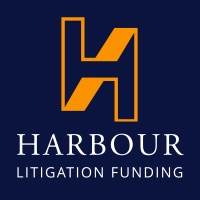30 July, 2018
We are often surprised by how seldom we are asked about the fundamentals of funding and what that means for Harbour. The following questions may help in building a picture of the funder(s) you are having a conversation with. In the spirit of the theme of this edition, we have made the references competition law specific, but they are valid for all claims.
Make sure you are clear, early in the conversation, whether you are dealing with a funder or a broker. Brokers may describe themselves as funders, or use ’funding’ in their name, but they essentially act as an intermediary between those in need of funding and those who have funds.
Using brokers can be helpful when you hope to receive o ers from several funders for your consideration, but it is important to know that not all brokers work with all funders. In addition, if your matter is time sensitive it may save you time if you engage with the funder directly.
Capital adequacy
In a sector where financing is at the core of its business, it is vital to establish that the funder has the required capital to support your action. In the UK, it is advisable to work with a funder who is an approved member of the Association of Litigation Funders of England and Wales (ALF). The ALF’s Code of Conduct sets out the standards by which funder members must abide, one of them being capital adequacy.
Some jurisdictions outside of the UK are starting to consider how to deal with capital adequacy when it comes to third party funding, such as the implementation of a Code of Practice equivalent to the UK regime. Until then, asking the question is a must.
Other key questions
Do you ring-fence the costs/budget you agree to fund? Ring-fencing means that the funds are set aside immediately for use in your case, and only in your case.
Do you leverage your funds? Leveraging means that a funder a) commits to financing more cases than it possesses funds, b) borrows money to fund or c) does both. If cases exceed the original budget, unexpectedly fail or take longer than anticipated, the funder ultimately may not be able to pay all of your legal costs when they fall due.
Do you have experience in the relevant area of law or jurisdiction? This is especially important in the eld of competition litigation, which is a highly specialised area. A funder with substantial experience in this space is unlikely to panic when complexities inevitably arise.
Do you have experience of funding group or class actions? Group/class actions are common in the eld of competition litigation, and are subject to complexities not found in standard disputes. If you are going to be part of a claimant group, it is preferable to be backed by a funder with deep experience of funding group actions.
Can you cover my adverse costs exposure in this action? Although this question is linked to the overall importance of a funder’s capital adequacy, some funders have access to dedicated ATE insurance facilities which can provide excellent support in relation to adverse costs exposure. It may save time and offer access to competitive pricing.
Practical questions
In our discussions with lawyers, practical questions tend to come up in conversation.
However, such questions mainly relate to our due diligence process (what it entails), the period it takes to get funding approval and whether we exercise control over the litigation or interfere with settlement negotiations (we don’t do either).
What funders may ask you
Funders may have di erent criteria that they apply before deciding to nance a competition action, but most will look for the following:
A defendant with enough capital to meet the claim.
A reputable and experienced claimant legal team.
Written analysis of the strengths and weaknesses of the proposed action.
A realistic estimate of damages.
A clear budget for the amount of funding required.
An estimate of the likely duration of the action.
A clear strategy for prosecution and resolution of the action.
In the eld of competition litigation, experienced funders will work with the claimant and the claimant’s legal team in satisfying the above.
Conclusion
Asking the right questions will o er you a more comprehensive insight into how the funder operates, so that you can make an informed decision. And no reputable funder should struggle to answer any of the above.
By Stephen O’Dowd, Senior Director of Litigation Funding, Harbour
For further information, please contact:
Ruth Stackpool-Moore, Director of Litigation Funding / Head of Harbour Hong Kong
ruth.sm@harbourlf.com





